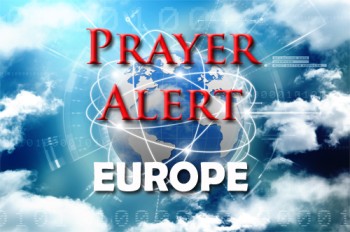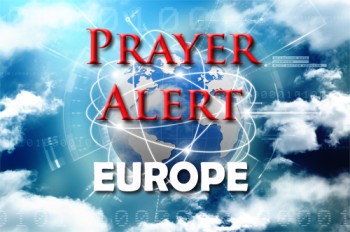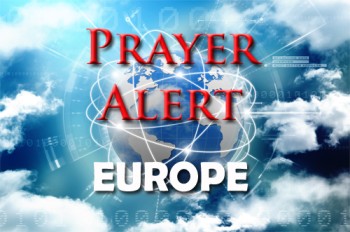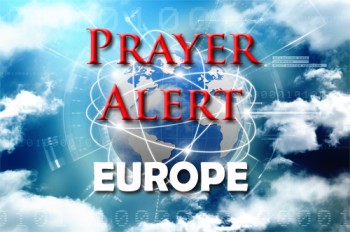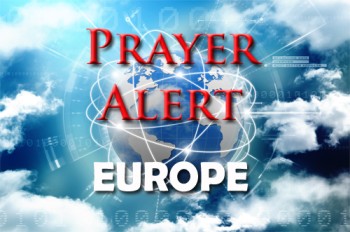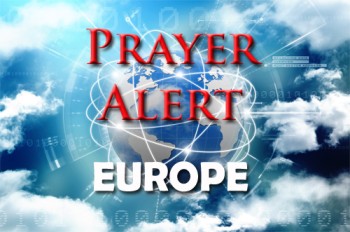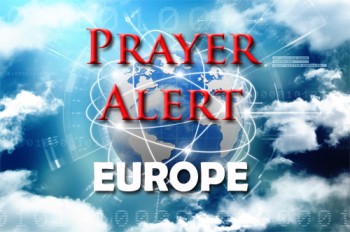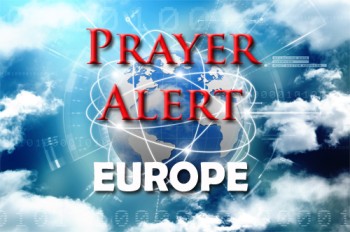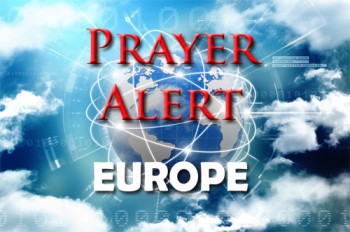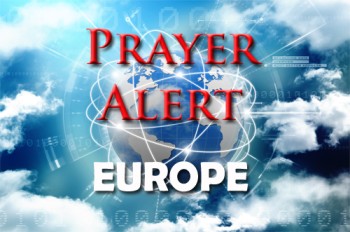Displaying items by tag: Europe
Trump warns of ‘severe consequences’ if Putin refuses to agree to a ceasefire
Donald Trump has warned of ‘very severe consequences’ if Vladimir Putin refuses to agree to a ceasefire in Ukraine during their meeting in Alaska on 15 August. While not detailing the measures, Trump has previously suggested economic sanctions and hinted at a follow-up meeting that could include Volodymyr Zelensky. Concerns persist among European leaders and Kyiv that any peace proposal might involve Ukraine surrendering territory - particularly the Donbas region - in exchange for halting further Russian advances. In a high-level virtual call hosted by Germany, Zelensky, Trump, and key European leaders reaffirmed their commitment to Ukrainian sovereignty and continued pressure on Moscow. Zelensky dismissed Putin’s threats as bluffs, insisting that sanctions and united international resolve remain crucial. The Alaska summit is seen as both a diplomatic opportunity and a high-stakes gamble, with Ukraine’s territorial integrity and the broader stability of Europe hanging in the balance. Meanwhile, on 12 August Russian troops tried to make a big advance, possibly to put extra pressure on Kyiv to cede territory: see
Greece: wildfires threaten large city, European heatwave
Fast-moving wildfires have reached the outskirts of Patras, Greece’s third-largest city, forcing mass evacuations, including a children’s hospital, and destroying thousands of hectares in the surrounding region. Entire villages have been emptied, homes and businesses lost, and hundreds of vehicles incinerated. Strong winds and soaring temperatures, reaching 38°C, have worsened the crisis, while smoke has caused respiratory problems for many residents. Across Greece, over 4,800 firefighters are battling more than 20 blazes, with EU water bombers requested for support. The crisis is part of a broader southern Europe heatwave, with deadly fires in Spain, large outbreaks in Portugal, Albania, and Italy, and record-high temperatures threatening lives and infrastructure. Meteorologists say such extremes are becoming more frequent and intense due to human-induced climate change. See also UK article ‘fourth heatwave’.
France: Macron admits violence against Cameroon independence movement
Emmanuel Macron has publicly acknowledged the violence committed by French forces in Cameroon during and after the country’s independence struggle from 1945 to 1971. A joint report by Cameroonian and French historians has detailed how France’s colonial authorities and army used severe repression, including mass killings, internment camps, and support for brutal militias, leading to tens of thousands of deaths. Macron named four independence leaders killed during French-led military operations and accepted France’s responsibility, but stopped short of offering an apology or addressing calls for reparations. Cameroonian responses have been mixed: some see acknowledgment as a positive step, while others say it is insufficient without concrete acts of justice. The report followed years of pressure for France to confront its colonial history, and Macron has taken similar steps regarding atrocities in Senegal, Rwanda, and Algeria, though often without formal apologies. The admission opens the door for further research and debate about France’s colonial legacy and reconciliation.
Ukraine: Trump claims ‘great progress’ in talks with Putin
Donald Trump has described talks on 6 August between his envoy Steve Witkoff and Vladimir Putin as ‘highly productive’, claiming that ‘great progress’ has been made toward ending the Ukraine war. The Kremlin issued a vague statement confirming the exchange of ‘signals’ but did not give further details. The meeting occurred days ahead of Trump’s ceasefire deadline, amid mounting frustration over stalled peace efforts. Volodymyr Zelensky and European leaders were briefed on the talks and reiterated the need to end the war. Despite Trump’s threats of increased sanctions, including raising the tariff on India to 50% for buying Russian oil, Russia has continued its attacks on Ukrainian cities. Three years into the invasion, peace talks have repeatedly failed, and Russia’s preconditions remain unacceptable to Kyiv. Meanwhile, the USA has approved $200 million in military support to Ukraine, with Trump still open to meetings with both Putin and Zelensky. The humanitarian toll of Russian strikes remains devastating and ongoing.
Greece: prime minister blocks full investigation into huge fraud scandal
A major scandal has erupted in Greece, with European prosecutors accusing senior government officials, including ministers and MPs, of orchestrating a large-scale scheme to defraud the EU of agricultural subsidies. It is claimed that individuals illegally claimed payments for non-existent or unusable pastureland, depriving legitimate farmers of support. However, those who have been accused are likely to evade justice because, despite widespread criticism, Prime Minister Kyriakos Mitsotakis is blocking a full-scale investigation, using legal loopholes and his party's parliamentary majority. A 3,000-page dossier has implicated former agriculture ministers and top officials in a coordinated effort to bypass controls, intimidate investigators, and ensure fraudulent payments were processed. Despite internal warnings and blocked payments, whistleblowers were forced out, and payments resumed under political pressure. Even though the extent of damages has not yet been assessed, Brussels has ordered Greece to forfeit nearly €400 in funding, over a fifth of the direct payments it had been due to receive next year. The case offers damning evidence that after three bailouts and a financial crisis that lasted over a decade, Greece still hasn’t cleared out the rot.
Ukraine: Trump shortens Russia's peace deal deadline
U.S. President Donald Trump has shortened his previously declared 50-day ultimatum for Russia to reach a peace deal in Ukraine, now stating that Vladimir Putin has “10 or 12 days” to agree or face severe economic sanctions. Speaking during a meeting with UK Prime Minister Keir Starmer in Scotland, Trump expressed frustration with ongoing Russian aggression, especially recent missile strikes on civilian areas, including care homes in Kyiv. Trump claimed he had come close to brokering a ceasefire with Putin five times but said a final agreement remains elusive. The initial 50-day delay had sparked criticism, with some arguing it gave Moscow undue leniency amid intensified summer offensives. Meanwhile, Ukraine's President Zelenskyy welcomed the decision to send more Patriot air defence systems and emphasised the need for increased protection from relentless Russian attacks. Ukraine’s frontlines remain under pressure, though no collapse is anticipated. Trump’s growing urgency reflects a strategic shift as the war enters its fourth year, with heightened expectations for swift action and greater Western coordination to defend Ukrainian sovereignty. See
Greece claims 'invasion' in Crete as it tries to halt asylum
Greece has suspended the right to seek asylum for at least three months amid a sharp rise in migrants arriving via the Libya–Crete route. The controversial policy, described by Migration Minister Thanos Plevris as necessary to avoid a national emergency, has been criticised by human rights advocates for violating EU and international law. Over 7,000 migrants reached Crete between January and June 2025, with overcrowded detention centres now housing refugees in harsh conditions. Many, like Mustafa from war-torn Sudan, are detained without legal recourse or access to proper shelter and care. Critics argue that even in times of crisis, the right to claim asylum must be protected. The government maintains the move is temporary and driven by national security and tourism concerns, while EU officials say they are reviewing the legality of Greece’s actions. As desperation grows among detainees, the situation raises urgent ethical and legal questions about how Europe handles asylum in the face of rising migration, public fear, and political pressure.
Ukraine: new peace talks, says Zelensky
Volodymyr Zelensky has announced that Ukraine and Russia will engage in another round of talks on 23 July in Turkey. This comes at a time of intensified Russian drone attacks and continued escalation in the long-running conflict, now in its fourth year. While earlier talks have led to prisoner exchanges, little progress has been made toward achieving a lasting peace. Russia’s conditions for ending the war include Ukraine’s full withdrawal from the regions of the country now occupied by Russia, and international recognition of territories it has claimed since 2014, including Crimea. Ukraine, on the other hand, seeks a ceasefire, restoration of its borders (to 2013), return of all abducted children, release of civilians, and the exchange of prisoners of war. Donald Trump has voiced support for increased sanctions on Russia to pressure a resolution, urging both sides to reach an agreement swiftly. The world watches closely as diplomatic efforts resume amid deep divisions and ongoing violence.
France: cities impose curfews on children after drug violence
Several French cities have introduced night-time curfews for minors in response to escalating violence linked to drug trafficking. In Nîmes, where recent shootings and a brutal murder have shaken residents, authorities have imposed a 9pm–6am curfew for under-16s to shield children from violence and criminal exploitation. Mayor Jean-Paul Fournier described the situation as 'untenable,' blaming drug gangs for fostering a climate of fear. Other cities, including Béziers and Limoges, have implemented similar curfews. However, officials admit enforcement is challenging, with continued youth disturbances and attacks on police undermining their effectiveness. In Béziers, youths recently ambushed officers with fireworks, and Limoges saw unrest involving 100 people. The violence highlights a growing trend of gang activity spreading beyond Marseille, France’s drug crime epicentre. In 2024, drug-related violence claimed 110 lives and wounded over 300. The government is responding with tougher laws, high-security prisons, and expanded investigative powers, but community leaders warn that more than policing is needed to protect young lives and restore peace.
France: prime minister proposes axing two public holidays
There has been widespread criticism after prime minister François Bayrou proposed eliminating two public holidays - Easter Monday and 8 May (Victory in Europe day) - to help reduce the national budget deficit. He argues that France’s debt is a critical threat, increasing by €5,000 every second, and that cutting holidays is part of a necessary strategy to recover €43.8 billion in savings. The proposal comes alongside other austerity measures, including freezing public spending, ending tax breaks for the wealthy, and reducing the civil service, while also increasing defence spending by €3.5 billion in 2026. His plan faces fierce opposition from the far-right and left-wing parties, with threats of a no-confidence vote which could topple the government, as happened to Bayrou’s predecessor. Critics have decried the holiday cuts as attacks on French heritage and workers' rights. Despite the political risks and deep parliamentary divisions, Bayrou insists the reforms are essential to preserve national stability. President Macron, although deeply unpopular, has consistently resisted suggestions that he should step down before the end of his second term, in 2027.
